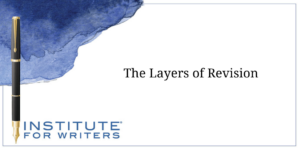
The Layers of Revision
To many, writing is revision, and most writers revise their manuscripts numerous times before they’ve shaped it into the best version that it can be.
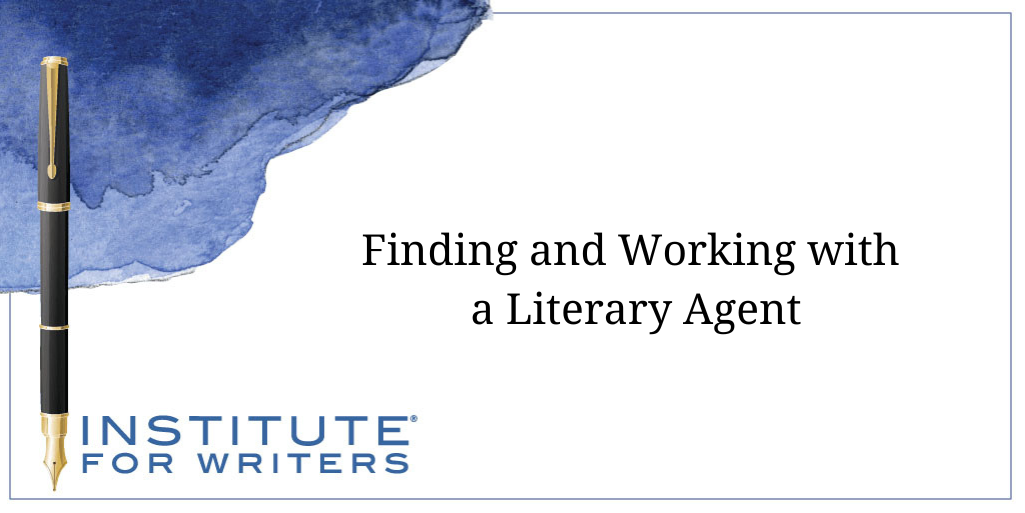
When I work with students at the Institute for Writers and they begin to talk about getting their book manuscript published, they sometimes tell me that since it is so difficult to find a publisher, they will just look for a literary agent.
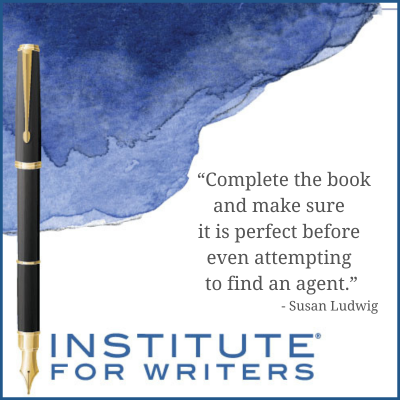 These students seem to think these publishing professionals are as easy to find as a real estate agent in your city. Unfortunately, that is not true. I quickly let these students know that finding and securing an agent is just as difficult and maybe even more so as it is to land a good publisher for their work.
These students seem to think these publishing professionals are as easy to find as a real estate agent in your city. Unfortunately, that is not true. I quickly let these students know that finding and securing an agent is just as difficult and maybe even more so as it is to land a good publisher for their work.
Finding an agent is such a challenging task that I sometimes see writers post on social media of their celebrations after contracting with one whom they like and feel great about. That means they found a literary agent who they believe could sell their manuscript to an editor, and who most likely has solid connections in the business to get that done.
The goal of a literary agent is to find book proposals that publishers will want to buy. Like an editor, agents do not read everything sent to them and usually need to be hooked on a story right away and not put it down. Of course, we writers know that this is not at all easy.
Just like a publisher, agents have particular book components they want to see. Some want to see the entire manuscript, others want three chapters, and many want a detailed summary of what the story is about.
All agents will want to be assured that the book is already complete—especially with new writers who do not have a publishing track record. That is because an agent would not want to interest a book publisher in your idea and then have the writer take forever to complete the rest of the manuscript. So, complete the book and make sure it is perfect before even attempting to find an agent.
 Once the agent has read the manuscript, gotten excited about its prospects, written notes, and comments, they will submit it to a publisher they believe will share their excitement. Since publishing houses cannot afford to take risks, they tend to work with agents they trust because they can believe in the agent’s opinion of the project.
Once the agent has read the manuscript, gotten excited about its prospects, written notes, and comments, they will submit it to a publisher they believe will share their excitement. Since publishing houses cannot afford to take risks, they tend to work with agents they trust because they can believe in the agent’s opinion of the project.
There are a few good ways to seek out literary agents for your book.
Identify rookies, agents who may be somewhat new to their job. It is likely that you won’t know literary agents if you are not in the publishing world, so unpublished writers should seek out agents who are newer to the industry. Since these professionals are just starting out, they are likely to be actively looking for manuscripts—the next big thing. This could be a good way to get your foot in the door especially since established agents may not want to take on new writer clients, especially those without a proven publishing track record.
Read books that are somewhat similar to the manuscript you are trying to sell. Look to the Acknowledgements page of those books and find the area where the writer thanks their agent. Although writers do not always cite their agent’s name and thank them, they often do. You can do an online search for the mentioned agent, read through their website, check out the projects they are presently interested in, determine if they are accepting manuscripts, and then begin to formulate an inquiry as you attempt to gauge the agent’s interest.
 Go to Writers Conferences. A few years ago, I was looking to land an agent for a Young Adult manuscript I had written. I met with an agent who read the first ten pages. She loved the story but had eye-opening (for me) ideas about the way I approached the main character’s interactions with a minor character and how this affected the entire story. This advice was helpful and she encouraged me to get back in touch with her whenever I wanted to.
Go to Writers Conferences. A few years ago, I was looking to land an agent for a Young Adult manuscript I had written. I met with an agent who read the first ten pages. She loved the story but had eye-opening (for me) ideas about the way I approached the main character’s interactions with a minor character and how this affected the entire story. This advice was helpful and she encouraged me to get back in touch with her whenever I wanted to.
Writers conferences often host a few agents at their events. Writers can sign up for one-on-one meetings, written critiques, or other ways to get the manuscript in the agent’s hands. These agent meetups do cost more money in addition to the conference fees, but are always worth it for the exposure, networking, and honest critique agents will give.
Look on social media. Even those writers who are not social media fans should follow agents and publishers on Instagram and Twitter (now called X) because news and call-outs for submissions are often found there first.
Listen to podcasts. Look for those that interview writers, especially debut writers. Often the interviewer will ask questions about how the writer got their contract, maybe discuss their agent, and provide other helpful and interesting information writers can use. You may even podcast where the agents themselves are interviewed.
Your goal will be to find an agent you connect well with, who believes your manuscript is going to interest a publisher, and who works at a pace you are comfortable with. Read online or talk to other writers to learn more about this way to be published and good luck with your endeavors.
Susan Ludwig, MEd has been an instructor with the Institute of Children’s Literature for almost twenty years. Susan’s writing credits include teacher resource guides, English language learner books, and classroom curriculum for elementary through high school students. A former magazine editor, she assesses students’ written essays as a scoring director for the ACT and SAT exam. When she is not writing or working, she is usually found playing with her grandsons or curled up with a good book.

To many, writing is revision, and most writers revise their manuscripts numerous times before they’ve shaped it into the best version that it can be.
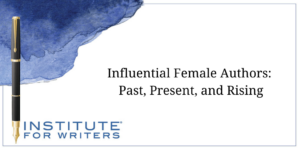
We’re going to look at influential female authors of the past, those impacting the present, and whom the industry expects to make a big splash.
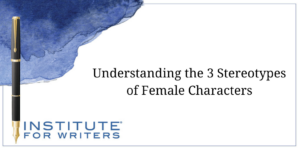
This week, we’re focusing on how we as writers can create strong female characters that others will look up to, instead of harmful stereotypes.
1000 N. West Street #1200, Wilmington, DE 19801
© 2024 Direct Learning Systems, Inc. All rights reserved.

1000 N. West Street #1200, Wilmington, DE 19801
© 2025 Direct Learning Systems, Inc. All rights reserved.

1000 N. West Street #1200, Wilmington, DE 19801
©2025 Direct Learning Systems, Inc. All rights reserved. Privacy Policy.